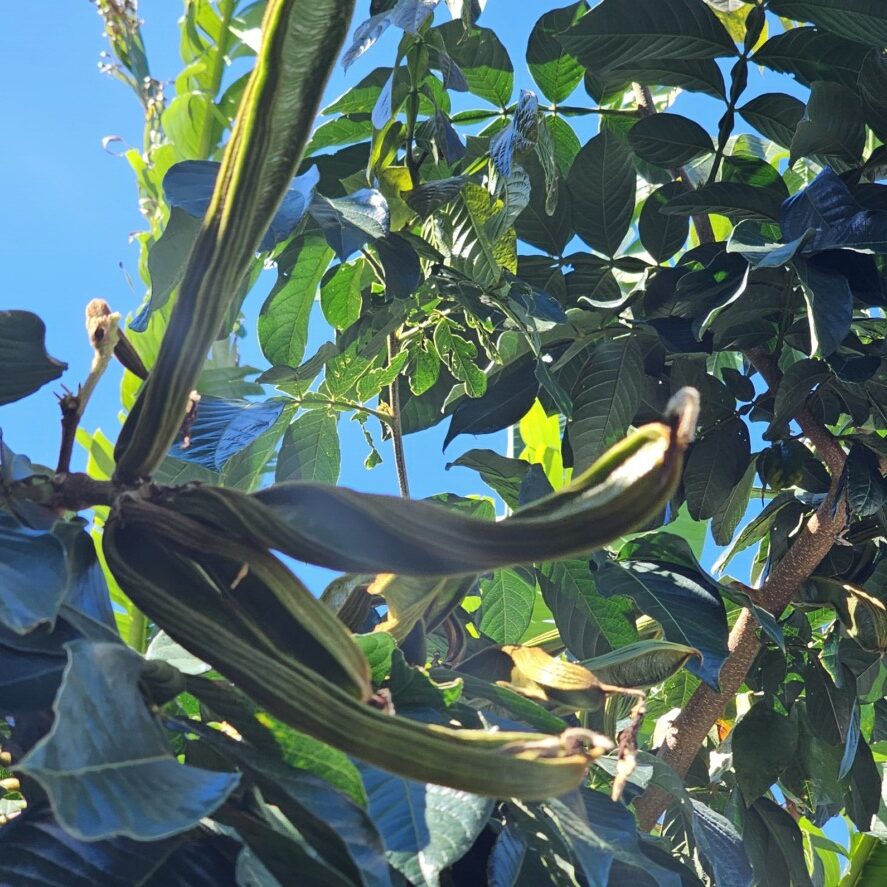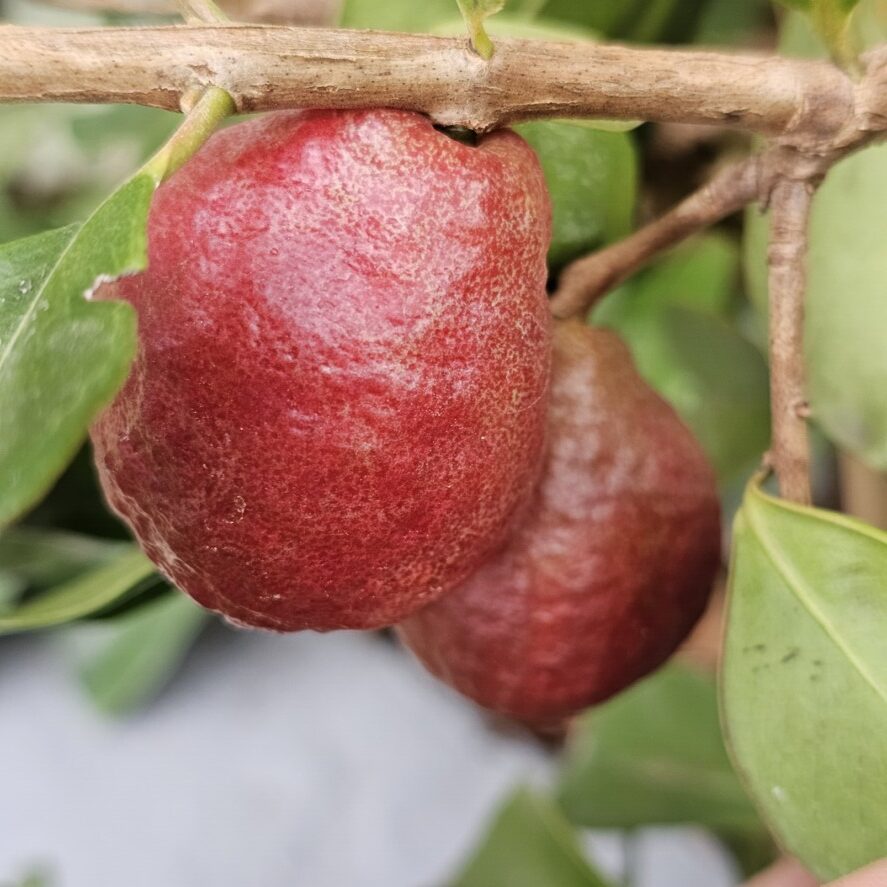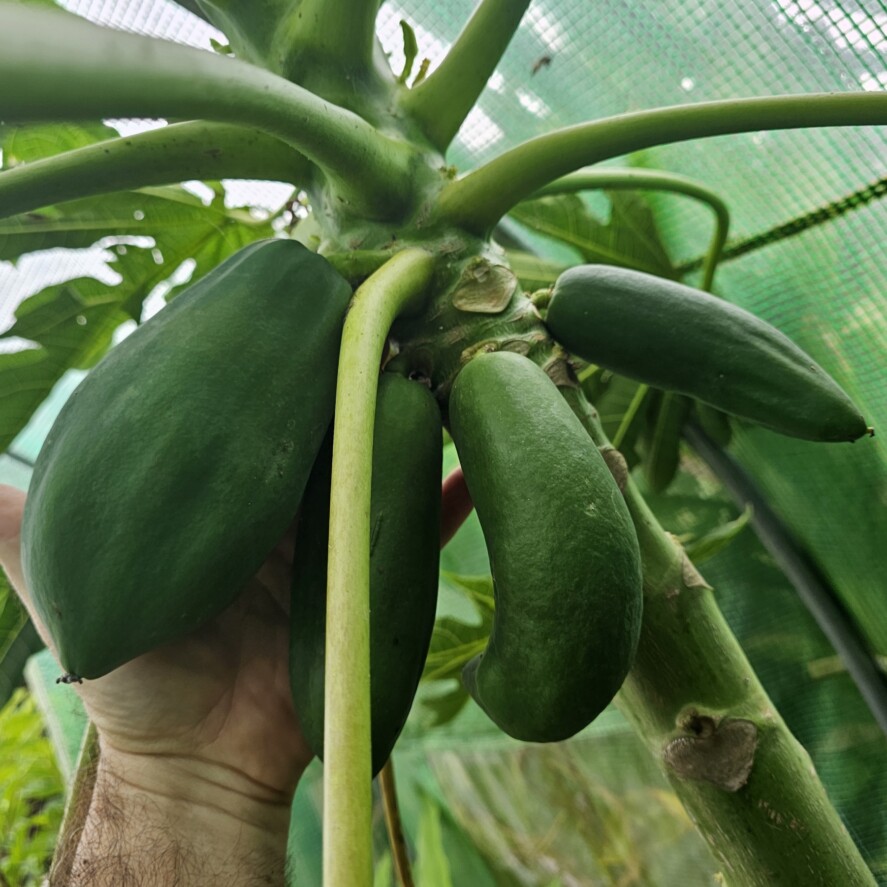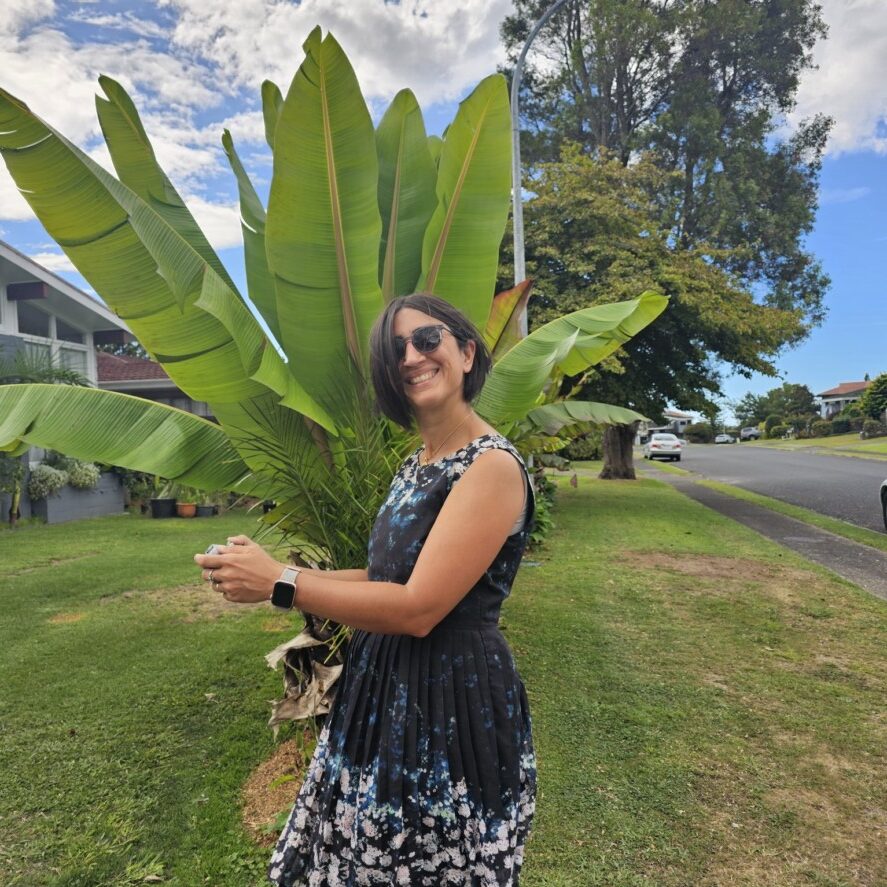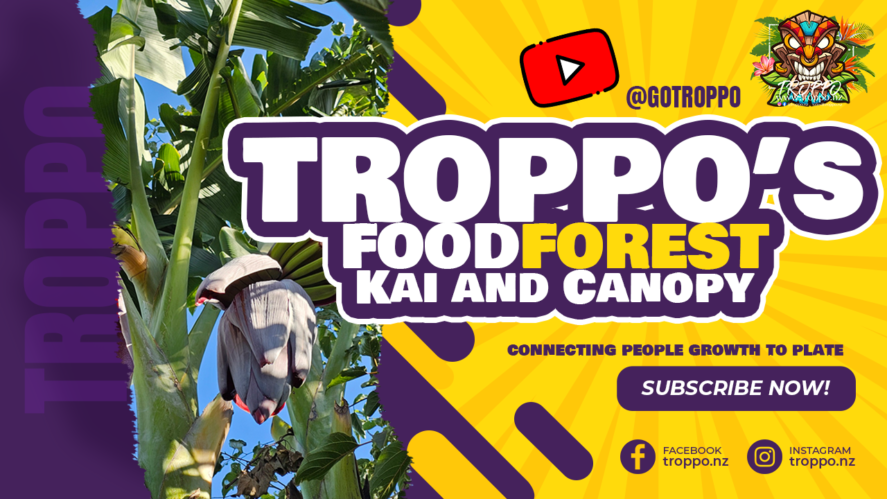-
Troppo Plant & Garden Articles
- Te Puke Region
- TROPPO’s Food Forest in Te Puke, BOP (www,foodforest.org.nz)
- Troppo’s Plant Collection
- TROPPO's Nursery Directory
- Food Forests of New Zealand (www.foodforests.nz)
- Nursery Map - Plant Suppliers of NZ Directory (www.nurserymap.nz)
- Kids Garden Corner
- New Zealand Garden Bird Survey
- New Zealand Garden Groups
- Delicious Recipes
* Food Forests of New Zealand (www.foodforests.nz), * TROPPO's Food Forest in Te Puke, BOP (www.foodforest.org.nz), Te Puke Region
The Tangled Roots of Generosity: Ethical Considerations When Charity-Gifted Plants Enter Commercial Food Forest Events

 The spirit of sharing and abundance lies at the heart of many food forest initiatives, often amplified when charitable organizations are involved. Imagine Troppo, an initiative headed up under a local charity, the “Vector Group Charitable Trust” dedicated to fostering community food resilience, generously gifts a collection of fruit trees to a local food forest, intending to support their burgeoning edible ecosystem and bolster community food security. On at least four separate occasions, the food forest facilitator has subsequently utilized these plants as a central feature of their commercial activities. Well-attended paid workshops, participants were given stock directly from Troppo’s donated trees such workshops with central focus on donated stock for demonstrations and take-home plants. Thirdly, the facilitator advertised and implemented paid food forest installations for local Iwi where attendees learned planting techniques using, among other things, the charity-gifted specimens. Finally, the facilitator has reportedly used these donated plants in paid installations of food forests on private properties. While the intention to spread knowledge and encourage food forest development is laudable, the repeated commercialization of these charity-sourced plants raises several nuanced ethical considerations.
The spirit of sharing and abundance lies at the heart of many food forest initiatives, often amplified when charitable organizations are involved. Imagine Troppo, an initiative headed up under a local charity, the “Vector Group Charitable Trust” dedicated to fostering community food resilience, generously gifts a collection of fruit trees to a local food forest, intending to support their burgeoning edible ecosystem and bolster community food security. On at least four separate occasions, the food forest facilitator has subsequently utilized these plants as a central feature of their commercial activities. Well-attended paid workshops, participants were given stock directly from Troppo’s donated trees such workshops with central focus on donated stock for demonstrations and take-home plants. Thirdly, the facilitator advertised and implemented paid food forest installations for local Iwi where attendees learned planting techniques using, among other things, the charity-gifted specimens. Finally, the facilitator has reportedly used these donated plants in paid installations of food forests on private properties. While the intention to spread knowledge and encourage food forest development is laudable, the repeated commercialization of these charity-sourced plants raises several nuanced ethical considerations.
The Initial Intention and Informed Consent in a Charitable Context:
- Clarity of Purpose and Charitable Aims: Was the initial gift from Troppo, operating under the Vector Group Charitable Trust’s umbrella, given with the understanding that the plants would become a recurring feature of the food forest owner’s commercial ventures, including externally paid workshops and privately paid installations? The charity’s primary aim is community benefit and resilience. Does the repeated use of their donated resources in these income-generating activities align with this charitable mission? Explicit consent regarding such consistent commercial use is even more critical when a charity is the donor.
- Acknowledgement and Charitable Contribution: Does the food forest owner transparently acknowledge TROPPO and the Vector Group Charitable Trust’s significant initial and ongoing contribution during their paid workshops and when showcasing their installations? Highlighting the charitable source reinforces the spirit of giving and could even encourage further community support for the Trust. Failure to do so risks obscuring the charitable origin and the intended community benefit, potentially misleading participants and clients about the true source of the resources.
- Potential for Misappropriation of Charitable Resources: The repeated use of charity-gifted assets as a core component of a for-profit venture across multiple workshops and paid installations, even with educational goals, could be perceived as a significant misappropriation of charitable resources if not explicitly and repeatedly agreed upon. The public and the charity’s donors expect these resources to directly benefit the community in a way that aligns with the charity’s non-profit status.
The Distribution of Propagated Material from Charity-Gifted Plants:
- Commercialization of Charitable Gifts: Charging participants in workshops for plants directly sourced from a charitable donation, or their offspring, and using them in paid installations necessitates careful ethical consideration. While covering workshop costs is understandable, a recurring profit motive derived from these gifted resources across multiple events and installations could be seen as significantly ethically questionable. The benefit should demonstrably extend to the wider community, aligning with the charity’s goals, rather than primarily enriching the workshop facilitator.
- Control Over Distribution and Charitable Impact: Did the Vector Group Charitable Trust intend for the gifted plants to become a revenue stream for the food forest owner through repeated distribution in paid workshops and installations? The charity might have had specific intentions regarding the plants’ use in directly benefiting the community’s food resilience, which appears to be increasingly diluted by individual distributions within a commercial context, potentially under the guise that the workshop facilitator has independently cultivated such a large quantity of plants.
Maintaining Ethical Practices with Charitable Involvement:
 Urgent Need for Enhanced Communication and Accountability: Open, transparent, and immediate communication between the food forest owner and the Vector Group Charitable Trust is paramount. A clear and formal agreement outlining the permissible use of the plants in commercial activities, including limitations and potential revenue sharing, is now crucial given the repeated instances. Regular updates and detailed accountability regarding the impact of the gifted plants and any derived income would also be essential to maintain ethical standing.
Urgent Need for Enhanced Communication and Accountability: Open, transparent, and immediate communication between the food forest owner and the Vector Group Charitable Trust is paramount. A clear and formal agreement outlining the permissible use of the plants in commercial activities, including limitations and potential revenue sharing, is now crucial given the repeated instances. Regular updates and detailed accountability regarding the impact of the gifted plants and any derived income would also be essential to maintain ethical standing.- Stricter Alignment with Charitable Objectives: The food forest owner has a responsibility to ensure that their ongoing use of the charity-gifted plants demonstrably aligns with the Vector Group Charitable Trust’s overarching objectives of community food resilience and building community, rather than primarily serving as a source of income through repeated commercial activities.
- Mandatory Transparency to Workshop Attendees and Installation Clients: Attendees of all paid workshops and clients of paid food forest installations must be explicitly informed about the origin of a significant portion of the plant material, acknowledging the charitable donation by Troppo and the Vector Group Charitable Trust that made these resources available. This transparency is crucial for fostering trust and accurately representing the value chain.
- Strong Consideration of Revenue Sharing or Community Contribution: Given the repeated commercial use of the charity’s donated plants across multiple events and paid installations, exploring a significant revenue-sharing arrangement with the Vector Group Charitable Trust or a substantial contribution of proceeds to further community food resilience initiatives is now not just ethical, but arguably a necessary step to rectify the current imbalance.
Finding a Balanced Approach with Charitable Contributions:
The repeated involvement of a charitable organization like the Vector Group Charitable Trust in providing the foundational resources for the food forest owner’s commercial activities adds a significant layer of ethical complexity. While the food forest owner’s efforts to educate and facilitate food forest establishment have value, the consistent leveraging of charity-donated plants for personal gain across multiple income-generating avenues necessitates a far more stringent ethical framework. Open dialogue, a clear and revised understanding of the charity’s mission in light of these repeated commercial uses, and a demonstrable commitment to maximizing community benefit beyond individual workshop attendees are essential to ensure that the initial act of charitable giving is honored and its intended impact is realized, and that the food forest owner’s activities do not inadvertently undermine the trust and purpose of the charitable trust.
The Silent Benefactor: Omitting Charity Kudos in Online Presence
 Beyond the workshops and installations, a further ethical concern arises in the food forest facilitator’s online presence. Scrutiny reveals a consistent omission of any acknowledgement towards Troppo and the Vector Group Charitable Trust in their social media posts showcasing the flourishing food forest and the successful workshops. Images and testimonials from workshops featuring plants directly sourced from the charity’s donation are shared without any mention of their origin. Similarly, the food forest’s website, while detailing its growth and the facilitator’s expertise, remains conspicuously silent on the significant initial and ongoing contributions made by the charitable trust.
Beyond the workshops and installations, a further ethical concern arises in the food forest facilitator’s online presence. Scrutiny reveals a consistent omission of any acknowledgement towards Troppo and the Vector Group Charitable Trust in their social media posts showcasing the flourishing food forest and the successful workshops. Images and testimonials from workshops featuring plants directly sourced from the charity’s donation are shared without any mention of their origin. Similarly, the food forest’s website, while detailing its growth and the facilitator’s expertise, remains conspicuously silent on the significant initial and ongoing contributions made by the charitable trust.
This lack of attribution, whether intentional or an oversight, carries several negative implications. Firstly, it obscures the true narrative of the food forest’s development, presenting an image of entirely self-generated success without acknowledging the foundational support received. This can be misleading to the public and potential workshop participants, who may be unaware of the charitable underpinning of the resources being utilized.
Secondly, it diminishes the visibility and potential impact of the Vector Group Charitable Trust. By failing to credit the charity, the facilitator misses opportunities to raise awareness about their work in fostering community food resilience and potentially attract further support for their initiatives. This silence effectively isolates the food forest’s success from the charitable ecosystem that helped nurture it.
Finally, the omission can be perceived as a lack of gratitude and respect towards the donors. It risks creating an impression that the facilitator is solely responsible for the abundance on display, potentially undermining the spirit of collaboration and community that food forest initiatives often espouse. In an era of transparency and ethical sourcing, the silent benefactor becomes a missed opportunity for positive reinforcement and a potential source of ethical scrutiny. Acknowledging the charitable roots of the food forest online would not only be ethically sound but could also enhance the narrative and foster stronger community connections.
#FoodForestEthics #CharityGifting #EthicalSourcing #CommunityResilience #FoodForest #NonProfitImpact #TransparencyMatters #GiveCredit #EthicalBusiness #SupportCharities #FoodSecurityNow #CommunityGardens #SustainableLiving #GrowYourOwn #CharitableGiving #SocialResponsibility #Accountability #DoTheRightThing #Gratitude #AcknowledgeDonors



